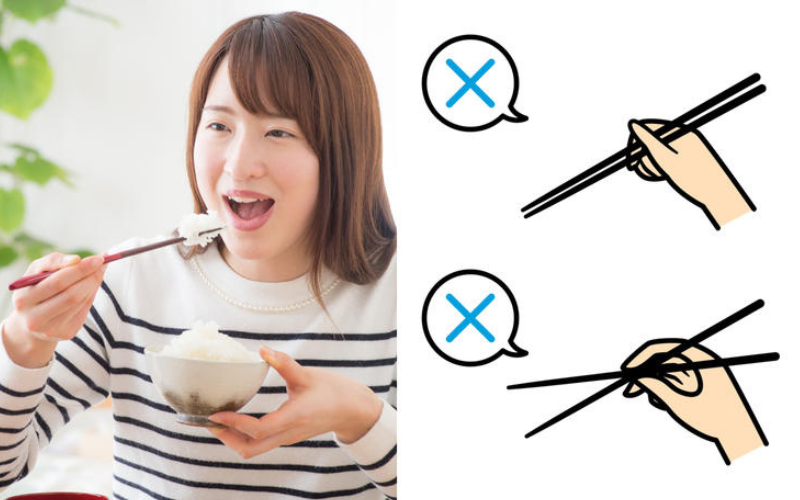Japanese people are incredibly warm and welcoming towards tourists visiting Japan. However, travellers, especially those coming from the West, tend to worry about unintentionally insulting the Japanese.
The most important thing to know is that as long as you act kind and you are respectful, then you’ll be fine!
Here is a guide to do’s and don’ts when you visit Japan
Understand the tipping culture in Japan

In Japan, the practice of leaving a tip is a cultural nuance that often surprises tourists because, unlike many other countries where tipping is customary, it’s not the done thing in Japan. While leaving a tip isn’t considered rude per se, it’s simply not expected, and doing so may cause confusion or discomfort. Visitors might find themselves in a scenario where a waiter or waitress chases after them to return the money left on the table, as it goes against the local customs.
Coming from a culture where tipping is prevalent like America, it’s natural to feel uneasy about this concept. However, it’s important to respect and adhere to Japanese customs while visiting the country. Remembering that tipping isn’t the norm can help avoid any awkward situations during your stay.
That being said, there is a slight exception to this rule. If you participate in a guided tour during your time in Japan, it’s generally acceptable, though still not expected, to offer a small tip to your tour guide as a token of appreciation for their services. In this case, it’s customary to wrap and fold the tip in paper and present it to the guide with both hands as a sign of respect.
Maintain silence on the train
Japan, a land of bullet trains, bustling cities, and serene temples, offers a unique experience for travellers but venturing beyond the iconic sights requires navigating the efficient and widely used public transportation system.
Unlike some countries where public transportation can be a cacophony of conversations and phone calls, Japan prioritizes a quiet, serene and respectful atmosphere. This doesn’t mean complete silence; soft conversation and discreet phone use in emergencies are acceptable. However, keeping your voice down and avoiding lengthy calls demonstrates respect for fellow passengers seeking a peaceful respite during their commute.
Furthermore, silence is embraced as an opportunity to unwind. You’ll notice many passengers reading, napping, or simply enjoying the quietude. Following suit allows you to experience this unique aspect of Japanese culture. Ditch the blaring music and noisy games on your phone. Instead, immerse yourself in a book or simply observe the passing scenery – it can be a refreshing break from the constant stimulation of everyday life.
Be cautious of disposing of your rubbish

Indeed, maintaining cleanliness is a point of pride in Japan, and one contributing factor is the scarcity of public bins. Despite the challenge of finding a place to dispose of waste while out and about, Japanese residents and visitors alike uphold the principle of personal responsibility for their rubbish. Rather than littering the streets, individuals hold onto their trash until they encounter a suitable disposal location.
For those navigating the streets of Japan, locating a public bin can sometimes feel like a scavenger hunt. However, there are reliable spots where bins are commonly found. Convenience stores, known as “conbini” in Japanese, often have bins located nearby for customer convenience. Additionally, you’re likely to find bins next to vending machines, making it convenient to dispose of any packaging or containers from purchased items.
Don’t count your change

The exchange of money carries a cultural significance beyond its monetary value in Japan and that’s why when making a purchase, it’s common for your change to be returned to you on a small tray rather than handed directly to you.
This practice serves both practical and symbolic purposes. However, it’s essential to be mindful of certain customs surrounding this exchange to avoid unintentionally causing offense.
One such custom involves refraining from counting your change in front of the cashier or salesperson. While it might be an instinct to verify the accuracy of your transaction, doing so can inadvertently signal distrust.
In Japanese culture, honesty and integrity are highly valued traits, and implying doubt in someone’s honesty can be perceived as disrespectful. Instead, it’s best to accept the change graciously without counting it immediately, trusting that the transaction has been conducted accurately.
Respect Japan’s Escalator Rules

Nationwide Lifts
Japan’s public transportation system is renowned for its efficiency, and even the humble escalator isn’t exempt from a touch of etiquette. For visitors from bustling metropolises like London or New York, this unwritten code might come as a surprise. Here’s a breakdown of the unspoken rules to navigate escalators in Japan like a pro:
- The Standing Lane: The left side of the escalator is designated for standing passengers. This allows for a smooth flow of traffic, especially during rush hour.
- The Walking Lane: The right side is for those in a hurry who wish to walk up the escalator. However, unlike some countries, there’s an expectation to be mindful of others.
- Keep it Clear: If you choose the walking lane, ensure you move at a brisk pace to avoid creating a bottleneck. Be prepared to step aside and let others pass if you fall behind.
- Silent Communication: The Japanese are known for their politeness. You likely won’t hear vocal complaints if you’re blocking the way, but a queue of frustrated passengers might build up behind you.
By following these simple guidelines, you’ll ensure a smooth and efficient journey for yourself and demonstrate respect for Japan’s cultural norms.
Master Chopstick Etiquette

While navigating a new culture can be daunting, mastering the art of chopstick etiquette in Japan is a surprisingly easy way to show respect and appreciation for the country’s customs.
While, as mentioned, proficiency with chopsticks isn’t expected of tourists, a genuine attempt goes a long way. Here’s a breakdown of some key “ohashi rules” to remember:
- Ditch the Rub: Resist the urge to rub your chopsticks together. This might be misconstrued as dissatisfaction with their quality.
- Respect the Ritual: Avoid sticking your chopsticks upright in your rice bowl. This is a ritual associated with funerals and best avoided during a joyful meal.
- Pointless Pointing: Refrain from pointing with your chopsticks or spearing your food with them. Both gestures are considered impolite.
- Sharing is Caring, (But Not Directly): When sharing a communal dish, use the end of your chopsticks opposite the eating end to serve yourself. Sharing food directly chopstick-to-chopstick is not customary.
- Rest in Peace: When not in use, place your chopsticks on a chopstick rest (if provided) or lay them neatly side-by-side on your plate. Crossing them is a no-no.
Remember, the core principle is respect. Don’t be overwhelmed by the number of rules – the Japanese appreciate your effort, even if you stumble a bit. Most restaurants will gladly offer a fork if you find chopsticks too challenging.
Get accustomed to the Wonders (and Quirks) of Japanese Toilets

The mystique of the Japanese toilet precedes many a traveller venturing to the Land of the Rising Sun. Whispers of heated seats, self-cleaning wonders, and a bewildering array of buttons paint a picture of technological marvel and potential confusion.
Unlike some public restrooms around the world, Japanese toilets prioritize both hygiene and user comfort. Stepping onto a warm seat, particularly on a chilly day, is a delightful first impression.
The bidet feature, a cornerstone of Japanese bathroom technology, offers a level of personal hygiene often unfamiliar to Western travelers. While the control panel might seem daunting at first glance, a quick exploration (often aided by helpful pictures!) will reveal the wonders of adjustable water pressure and direction.
For the privacy-conscious, some toilets boast a sound masking feature. This ingenious technology emits discreet background noises to alleviate any embarrassment associated with…well, certain sounds. A truly thoughtful touch for the culturally sensitive traveler.
However, amidst the high-tech marvels, a touch of tradition remains because traditional squat toilets (washiki) might still be encountered in older buildings, rural areas, or even some public restrooms.
A Guide to Bowing in Japan

In the tapestry of Japanese culture, the ojigi, or bow, holds a central place. It’s a gesture that transcends a simple greeting, evolving into a nuanced expression of respect, apology, or gratitude.
While mastering every intricate detail might take years of immersion, understanding the core principles allows visitors to navigate the art of bowing in Japan with confidence.
The foundation of bowing etiquette lies in reciprocity. If someone initiates a bow towards you, a return bow is expected.
The depth and duration of your bow should reflect the level of respect shown in the initial gesture. A deep bow from the waist is reserved for expressing utmost respect to superiors, elders, or on formal occasions. A slight bend at the waist or a head tilt is sufficient for casual greetings or brief acknowledgements from friends or colleagues.
Beyond the bow itself, mindful exits demonstrate cultural sensitivity. While not a strict requirement, avoiding a complete turn of the back when leaving a room or conversation conveys respect. A slight bow or head nod as you turn is a thoughtful gesture that acknowledges the presence of the other person.


